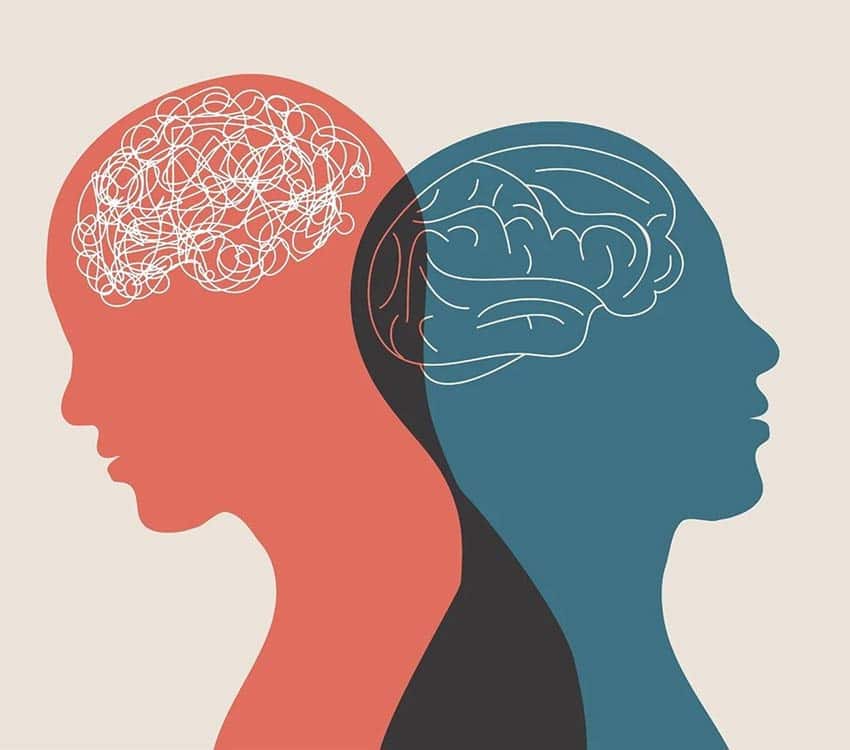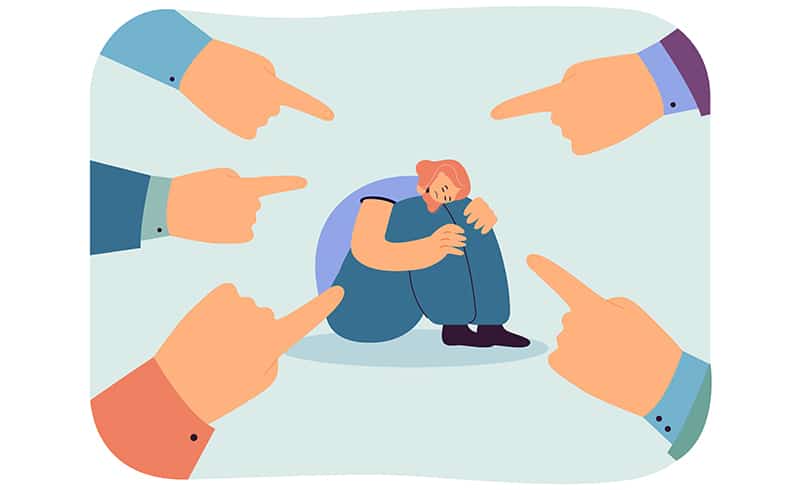In today’s society, despite advancements in many areas, mental health still carries a heavy stigma. This stigma is not just a barrier to conversation; it’s a wall that blocks many from seeking the help they need and deserve. In this comprehensive look, we will delve into the roots of this stigma, its impact, and how we can collectively work to change the conversation around mental health.

Understanding the Stigma Around Mental Health
Unraveling the Roots of Stigma
Mental health stigma is deeply rooted in a long history of misunderstanding and fear. For centuries, mental health issues were poorly understood, often attributed to supernatural causes or moral failings. These misconceptions, combined with portrayals in media and literature that often depict mental illness as dangerous or humorous, have contributed to enduring stereotypes.
The Varying Faces of Stigma
Stigma can manifest in overt discrimination, such as exclusion from activities or decision-making, or in subtler forms like casual jokes or offhand comments. It’s not always malicious, but even well-intentioned misunderstandings can perpetuate harmful beliefs.
Internalized Stigma: The Silent Battle
For those struggling with mental health issues, internalized stigma can be as damaging as external judgment. This involves adopting negative stereotypes and beliefs about oneself, leading to feelings of shame, inadequacy, and unworthiness.
The Impact of Stigma on Mental Health
Barriers to Seeking Help
Stigma often leads to people delaying or avoiding seeking mental health care. This can result in worsening of symptoms, and in severe cases, can lead to tragic outcomes like suicide.
Quality of Care
Even when individuals seek help, stigma can impact the quality of care they receive. It can lead to misdiagnosis or inadequate treatment, as symptoms may be dismissed or not taken seriously.
Social Isolation and Relationships
Stigma can also isolate individuals from their community and loved ones. It can strain relationships, as friends or family may not understand how to provide support, or may themselves buy into the stigma.

Changing the Conversation Around Mental Health
Educational Initiatives
Educating the public about mental health is crucial. This includes formal education in schools, workplace training programs, and public awareness campaigns that address the realities of mental health conditions and dispel myths.
The Power of Storytelling
Sharing personal stories of mental health challenges and recovery can be a powerful tool in breaking down stigma. These stories humanize the issue, creating empathy and understanding in place of fear and judgment.
Media Responsibility
The media has a significant role in shaping societal attitudes. Advocating for responsible reporting on mental health, and celebrating media that portrays mental health issues accurately and sensitively, can help change public perceptions.
Supporting Those with Mental Health Challenges
Fostering Open Dialogues
Creating spaces where individuals feel safe to discuss mental health openly and without judgment is key. This could be in the form of support groups, community forums, or even within families and friend circles.
Advocacy and Policy Change
Advocating for policies that protect the rights of individuals with mental health conditions, and that ensure access to quality mental health care, is essential. This includes pushing for insurance coverage for mental health treatment on par with physical health.

Building Support Networks
Developing strong support networks, both formally through mental health services and informally through community and social connections, can provide individuals with the resources and backing they need to navigate their mental health journey.
Reach Out To Us Today
As we conclude this exploration into the stigma surrounding mental health, it’s crucial to acknowledge that while the challenge is significant, so is our collective capacity for change. Changing the conversation around mental health isn’t just the responsibility of individuals who struggle with these issues or professionals in the field. It’s a societal imperative that requires effort and understanding from every one of us.
Looking Forward with Hope
As we move forward, it’s important to do so with hope and determination. The path to eradicating mental health stigma is not a straight line; it’s fraught with challenges and setbacks. But with each step we take – whether it’s reaching out for help, offering support, or engaging in informed discussions – we move closer to a world where mental health is treated with the same urgency and compassion as physical health.
You Are Not Alone
If you or someone close to you is navigating the complexities of mental health and feeling weighed down by stigma, remember that you are not alone in this fight. Our team is dedicated to providing support, understanding, and expert care. And if you’re in Tennessee, our sister company is there to offer specialized services and assistance. Reach out to us, and let’s take these steps together. By joining hands in this collective effort, we can change the conversation around mental health, one word, one action, one person at a time.











